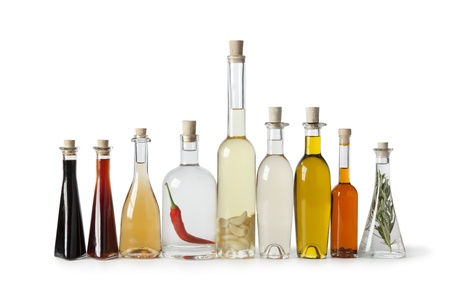
Vinegar literally means ‘sour wine’ and it was originally produced by the acetic fermentation of wine. Whilst there is some evidence that it existed in Britain in pre-Roman times, it was the Romans who introduced it more fully. The Romans were very keen on it as a condiment, for cooking and even – well watered down – as a drink.
When wine was not available, vinegar was made from other ingredients, such as ale. This is the origin of malt vinegar, which is so popular in Britain especially on fish and chips. This is unsurprising in a country without lemons.
Despite the ubiquity of malt vinegar in Britain, in recent decades there has been a greater interest in a wider variety of wine vinegars, including those flavoured with herbs and spices.
These days the most common culinary uses of vinegar is as a cooking ingredient (eg for vinaigrette), for pickling, and as a condiment.
In addition to its culinary uses, vinegar has also had various other roles to play in industry, medicine and the household, such as for cleaning and disinfecting.
More information
See also Balsamic Vinegar for more details about the artisan vinegar from Modena, Italy.
Leave a Reply